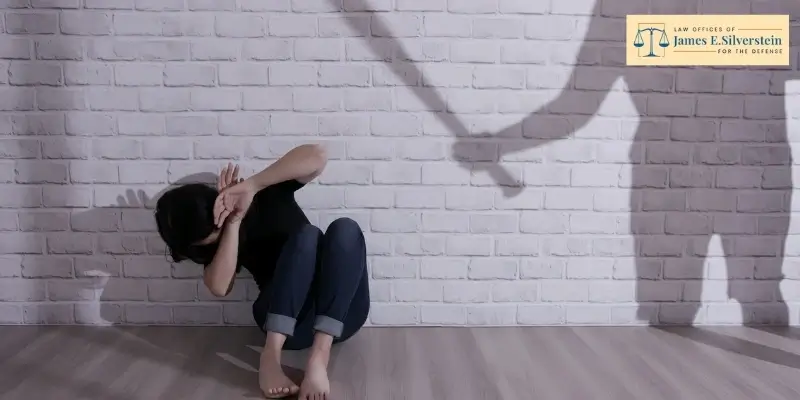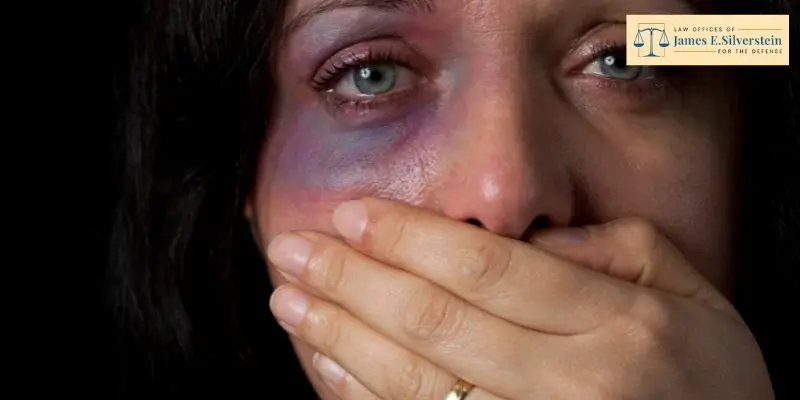|
|
Last Modified on May 06, 2025
Domestic violence is a serious charge in California, and judges take a hard stance against defendants. A conviction on domestic violence charges can have serious, long-lasting consequences on a person’s finances, career, personal relationships, and reputation. What are the long-term effects of domestic violence in California? If you’re facing allegations, here’s what you should know and what you can do to increase the chance of your desired outcome.
Domestic Violence in California
Domestic violence happens across age and socioeconomic lines. The California Department of Public Health (CDPH) reports that:
- 20% of women and 14% of men report experiences involving violence from an intimate partner.
- 17% of homicide victims are killed by their intimate partner.
- The estimated cost of domestic violence over a victim’s lifetime is $103,767 for women and $23,414 for men.
In California, there isn’t a specific domestic violence charge. Rather, domestic violence is a term that describes certain violent crimes when they occur between people who are in close relationships.
Domestic violence is not limited to physical abuse but can be any kind of abusive behavior, such as emotional, psychological, sexual, economic, or technological. Some of the criminal offenses that can be considered domestic violence when the people involved are in a close relationship include:
- Assault
- Battery
- Disturbing the peace
- Stalking
- Harassment
- Burglary
- Trespassing
- Vandalism
- Sex crimes

Many people think of domestic violence as happening between spouses, but it can also occur in other relationships. These include parents, children, siblings, or grandparents; people who live in the same household, such as roommates; people who are currently in a relationship, like girlfriends or boyfriends; and people who were previously in a relationship.
Long-Term Effects of Domestic Violence
Convictions for domestic violence offenses in California can often carry stiff penalties, and consequences can last long after the trial is over. A misdemeanor offense like domestic battery can be punishable by up to 1 year in county jail, a fine up to $2,000, a mandatory year-long intervention program that costs $500-$1,000, 3-5 years of probation, and a 10-year loss of gun rights.
More serious felony charges, like felony corporate injury, can result in up to seven years in prison and a $10,000 fine, as well as restitution for medical expenses and a restraining order of up to 15 years. A previous domestic violence conviction in the last seven years can add another 5 years of prison time, and in many cases, domestic violence charges count toward the Three Strikes Law, where a third conviction could result in a sentence of 25 years or more.
Impact on Personal Life
In some cases, a first-time offender may receive a lighter sentence, but a conviction still has a lasting impact on a person’s life. Domestic violence convictions can negatively impact child custody and parenting time, and if the offender is not a citizen, they may be at risk of deportation. Restraining orders and a criminal record of domestic violence can mean the loss of a job or professional credentials, as well as difficulty finding a new job or home.
How to Win a Domestic Violence Case
Winning a case when it comes to domestic violence means receiving a not-guilty verdict at trial or negotiating a reduction or dismissal of charges. The first step to achieving that goal is to work with a California criminal defense attorney who has experience defending against domestic violence charges. Hiring a qualified domestic violence lawyer in Los Angeles as soon as possible gives them more time to prepare a defense strategy.
A skilled criminal defense attorney with a record of successful outcomes in domestic violence cases can assess the details of the case, note factors that can impact the outcome, and build an aggressive legal defense strategy tailored to your specific charges and circumstances. This is the most reliable way to get the desired outcome in your case.

FAQs About Long-Term Effects of Domestic Violence in California?
How Long Is the Statute of Limitations on Domestic Violence in California?
As of January 1, 2025, the statute of limitations on domestic violence in California is seven years from the date of the incident. This means that victims have seven years to file a police report or charges against the abuser. The goal of extending the statute of limitations was to encourage victims of domestic abuse to come forward by giving them time to feel safe enough to address the challenges that keep them from reporting incidents.
Can a Domestic Violence Case Be Dropped in California?
A domestic violence case can be dropped in California in some cases. However, cases are not dropped if the only reason is that the victim no longer wants to pursue charges. The prosecutor is the one who makes the decision about whether to drop a case or not, and they generally make that decision in cases with insufficient evidence or procedural errors. In cases with first-time offenders, completing a diversion program may lead to charges being dropped.
What Is the New Domestic Violence Law in California?
A bipartisan bill package passed in 2024 extended protections and created new resources for victims of domestic violence. Among the changes included are faster processing times, extensions of time and location for domestic violence restraining orders, and a longer statute of limitations. It also created a fund for support, services, and restitution for victims and new tools to get justice for homicide victims related to domestic violence.
How Do Most Domestic Violence Cases End?
Most domestic violence cases end from negotiating a reduction in charges with the prosecutor, known as a plea bargain or plea deal. Overburdened court schedules can make this option beneficial to prosecutors, as it can mean they get a conviction without a trial, and many defendants prefer this over risking their chances on a higher charge and harsher sentence if they receive a guilty verdict in a court trial.
Consult a Criminal Defense Lawyer Today
At the Law Offices of James E. Silverstein, we know criminal defense. James E. Silverstein has more than 20 years of experience with domestic violence and other criminal cases. We can work tirelessly to help you navigate the court system and protect your interests, rights, and freedom. Reach out to the Law Offices of James E. Silverstein today to schedule a consultation and discuss your legal options.






